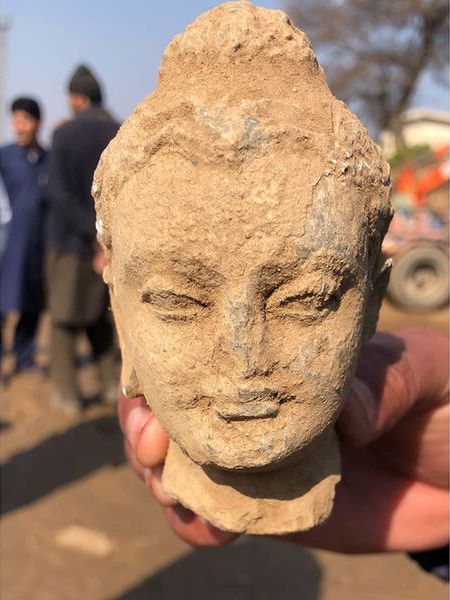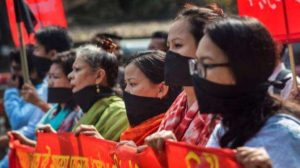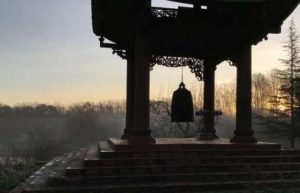
Archeologists in Pakistan say they have unearthed an 1,800-year-old Buddhist stupa and a trove of relics and artifacts at a site in the northwestern province of Khyber Pakhtunkhwa. Along with the ancient stupa—described as one of the largest and oldest in the region—local media reports indicate that officials from the provincial Department of Archeology and Museums have announced the discovery of more than 400 Buddhist antiquities.
“The archaeologists have discovered 1,800-year-old historical artifacts of the [Buddhist] period during excavation,” the director of the Department Archaeology and Museums, Dr. Abdul Samad Khan, was quoted as saying. “It is a significant discovery in many ways, especially in connection with religious harmony, tolerance, and multiculturalism in the Gandhara period.” (Outlook India, Daily Pakistan)
As well as the stupa and a variety of sculptures, artifacts discovered at the site include coins and stamps from the rule of an Indo-Greek monarch, hinting at the area being the site of a multicultural city thousands of years ago.
Dr. Khan added that since the commencement of excavation work six months ago, the archaeology department had begun to take formal steps to preserve artifacts unearthed there and to open the area to tourists visiting the region.

The discoveries were made in Swabi District—in an area known in the ancient world as Bazira—around 83 kilometers from the modern-day provincial capital of Peshawar, at an archaeological excavation that has already revealed a Buddhist temple believed to date from about the middle of the second century BCE.* The discovery implies that the temple was built within a few hundred years of the mahaparinirvana of the historical Buddha.
Archaeologists identified the ancient Buddhist temple in December, the find coming in the wake of the discovery of the remains of a Hindu temple earlier last year. The site was uncovered by archaeologists from Ca’ Foscari University and the Italian Archaeological Mission to Pakistan (MAIP), in collaboration with provincial archaeologists. MAIP was founded by the famed Buddhologist Giuseppe Tucci and has been excavating ruins related to Bazira since 1984. MAIP launched an “excavation season” in November 2021, which continued until the end of last year.*
Dr. Khan noted that the discovery of Buddhist and Hindu temples in the same area suggested that either the followers of these faiths lived side by side in the region or that they had built layered structures, one after the other.
“Pakistan is blessed with rich cultural heritage and is known as the cradle of civilization,” said Dr. Khan. “The whole country from Khyber Pakhtunkhwa to Punjab to Sindh and Baluchistan is full of archaeological treasures which remain hidden and undiscovered. Only about five per cent of the sites in Khyber Pakhtunkhwa Province have been scientifically explored.” (Gulf News)
He added that young archaeologists “take pride in protecting and preserving Pakistan’s multicultural heritage and hope they would do a lot better with funds and support from the government to “present the country’s glorious past to the world” and restore its identity as a multicultural society. (Gulf News)
Directorate of Archeology and Museums, KP has discovered 1800 years old Buddhist Stupa at Baho village Swabi. This is one of the largest Buddhist stupa in the region. pic.twitter.com/bDUwxMLiFZ
— Umer Farooq (@Umer_Pasanni) February 3, 2022
Buddhism has played a significant role in shaping the history and culture of what is now Pakistan and Afghanistan, flourishing in the kingdoms that lay on the Silk Road trade routes with Central Asia. The conquests of the Mauryan emperor Ashoka (r. c. 268–c. 232 BCE) and the subsequent Greco-Buddhist culture which blossomed under the Gandhara kingdom that emerged in what is today northwestern Pakistan and eastern Afghanistan from around 800 BCE to 500 CE, saw Buddhism establish deep roots that lasted for more than 12 centuries.
A wealth of ancient Buddhist stupas, monasteries, images of the Buddha, and other artifacts attest to this ancient and deeply rooted heritage. Ashoka’s territorial expansions, coupled with Greek influences in the mid-to-late fourth century BCE led to a unique cultural melting pot that saw the first known Buddhist statuary emerge in Gandhara—considered by many to represent the pinnacle of Buddhist art.
* Ancient Buddhist Temple Discovered in Pakistan (BDG)
See more
1800-Year-Old Bhuddist Artefacts Found In Pakistan’s Khyber Pakhtunkhwa Province (Outlook India)
1800-year-old Buddhist artifacts discovered in Pakistan’s Swabi (Daily Pakistan)
1800-year-old Buddhist Stupa discovered in Swabi, Khyber-Pakhtunkhwa. (Mashable Pakistan)
Pakistan’s trove of ancient treasures, lost civilizations and hidden relics (Gulf News)
Related news reports from BDG
Jogye Order Confers Award on Pakistan’s Ambassador to South Korea
Pakistan’s Surviving Buddhist Communities in Danger of Extinction
Archaeologists Unearth Ancient Buddhist Complex in Pakistan
Four Arrested in Pakistan for Destroying 1,700-year-old Buddha Statue
Korea’s Jogye Order to Establish Buddhist Temple in Pakistan














